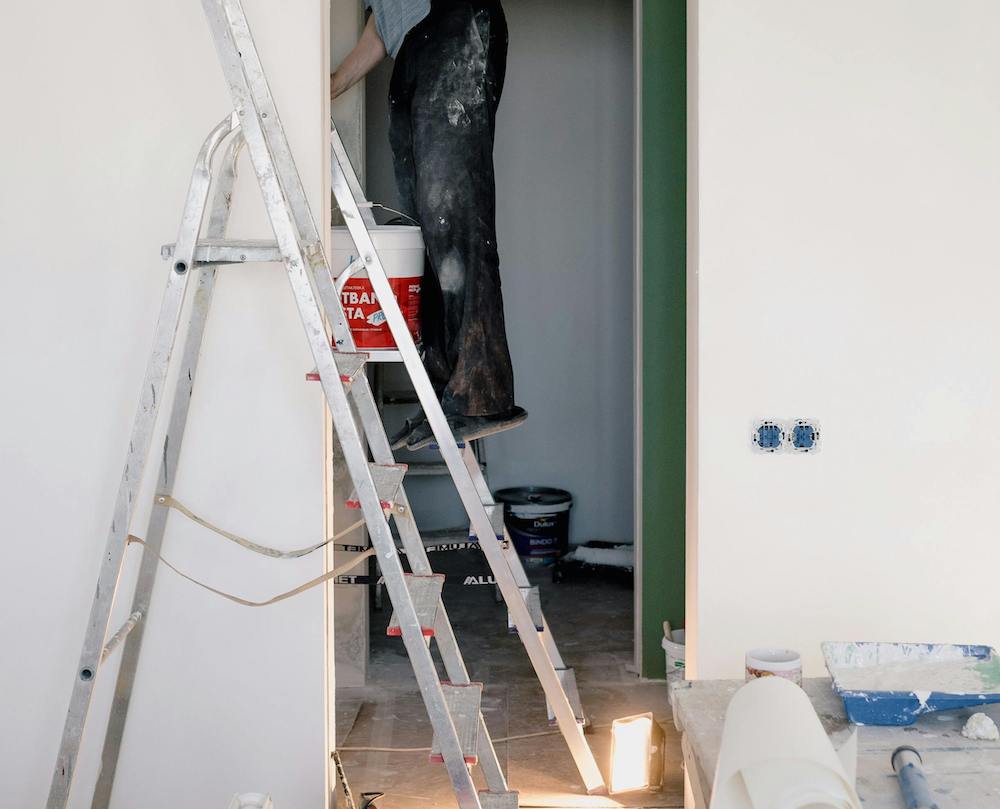We’ve discussed in this space many times (and will surely discuss countless more times in the future) how selling a home is likely the most significant financial decision someone makes in their life. It’s that critical importance that leaves us with no doubt the importance of doing everything we can as full-service agents to help our clients maximize that sale price and is why we leave no proverbial stone unturned in the process.
The Most Important Part: The Price
We talk a lot about the listing preparation process, and there’s always interest in discussing the nitty-gritty of the negotiations once a buyer (or buyers) shows up with an offer, but there’s one critical component of the listing process that doesn’t get discussed as frequently, and if done incorrectly can undo all the hard work done preparing a listing to look perfect and can undermine any agent in a negotiation. That component is the pricing of a home.
How to Determine Your Market Value
In the Toronto Real Estate market, there are functionally two ways to price a home. Before any of that can happen though, an analysis of what the estimated “fair market value” of the home must be done. By doing a Competitive Market Analysis, or a CMA, an experienced agent will find all the comparable recent sales in the market, as well as similar listings that did not sell, and compare those with the property to be listed. By analyzing the similarities and differences, and comparing the strengths and weaknesses, an estimated value of the home can be determined.
Do you have more questions about selling your home? Download our Seller’s Guide right here.
“Value is Subjective”
Now as I said this value is just an estimation. The sale of a home isn’t like buying a new TV from Best Buy. It’s a commonly used refrain, but it does ring true that “a home is worth whatever someone is willing to pay”. The value of a property is subjective, let’s imagine that there are two homes beside each other on the same street that were built at the same time by the same builder. They are otherwise identical, except the home on the left has lighter coloured finishes on the flooring and in the kitchens and bathroom, and the home on the left has the same brand and quality of finishes, but they are simply darker coloured throughout.
While these homes are functionally the same and would be estimated as having the same value, the home on the left came onto the market one week prior, and that week only ten potential buyers came through the property, and only one liked these finishes enough to make an offer.
That next week, those nine that didn’t buy the previous house came back, but six other buyers either entered the market or had time to come by or were attracted by the photos of the different colour finishes, and there ended up being three offers that drove the price 5% higher than the essentially identical home that just sold.
How to Set the Best Price
It might seem unfathomable, but these little nuances can happen all the time, and to a certain degree are out of the control of both the seller and the interested buyer(s). However, a potential seller can take solace in the fact that an experienced, full-time agent can give the strongest possible estimates to the sale price and use their experience in the market at that time and on what typically sells better in a specific location to give an even more accurate estimate. The other tool available that can help combat these home value complexities – and a tool that when used effectively can help maximize the ultimate sale price – is the pricing strategy.
Two Ways to Price a Home
As I said, there are two ways to price a home to sell in this city, and which strategy is most appropriate will be determined by analyzing the asset type and the market conditions.
The first strategy, the more “conventional” strategy, is to list at (or slightly above) the target sale price of the above estimated fair market value. This strategy is one that makes sense to the average consumer. If a buyer sees a property they like and they feel strongly about purchasing it, they can offer the list price (commonly referred to as “ask” or the “asking price”. If this buyer likes it, but wants to negotiate a lower price, either because it has been on the market for a long time or they don’t believe or want to pay the list price, they can make an offer below the ask and try and negotiate with the seller.
In general, this strategy is more appropriate for listings done during a slower market, a listing brought to market during off-peak times in the calendar year, or for a type of property that is quite niche. This is because this strategy only requires one potential buyer, compared to the next strategy which requires multiple interested parties to be effective.
Do you have more questions about selling a home in Toronto? Read these posts next:
Above I mentioned listing at or slightly above the target sale price. Often in conversations with sellers about pricing with this strategy, I get asked to list more significantly above the target sale price, with the rationale being it gives more “negotiation room” baked in. While this makes some sense, often it ends up being more of a detriment to the sale than anything.
Firstly, the higher list price will eliminate the property for some potential buyers, as it will either miss their automated searches or they will find it but perceive it to be out of their budget, even though it may not be.
Secondly, it will cause the property to likely sit on the market longer, which undermines the leverage negotiation strength that the seller will then have when there is a potential buyer. Days on market is inversely correlated to the ultimate sale price. What typically happens when a seller goes more than slightly above the target price is the property sits unsold and eventually the price is reduced to what it should have been listed for in the beginning, and the seller has used valuable DOM up at an unrealistic sale price and must weaken their position by reducing the asking price.
The market is efficient, and if a property is listed at a “fair” price, a buyer will materialize quickly and purchase it at that “fair” price, and if two buyers recognize that and demonstrate interest the seller may even end up getting more than that “fair” price in competition.
Finding the right real estate agent is a big part of your selling success. Read our blog about finding the right agent here.
The other effective strategy, and the one that often gives the public much chagrin, is the “under-list” strategy, and the accepting of offers on an “offer night”. This is when a property is listed well below the target sale price, and then all offers of any interested buyer are presented at the same time, using competition and motivation to drive the price up to and hopefully past the proverbial fair target price. One of the things I tell my buyer clients from the outset is that more often than not a list price in Toronto is nothing but a marketing tool used to maximize the sale price, and that is nowhere better demonstrated than with this strategy.
Conversely to listing at fair market value as we just discussed, this strategy works best in hot markets, during the busy spring and fall markets, and when listing a property that appeals to a broad demographic or is an asset that is very much in demand. That’s because intuitively the effectiveness of this strategy is contingent on multiple offers, and that the inherent emotion and competitive nature of the prospective buyers will drive them to offer significantly above the “list price”.
How this strategy typically works is that of the multiple offers, perhaps a handful of them will be legitimate prospective buyers. This strategy is effective because it solicits bids from agents that are either inexperienced, delusional, or counting on “hope”. These offers are made and don’t ever have a chance of being the winning bid, however it’s these “dummy” bids that will push the serious buyers to put their best foot forward, and then competing amongst those final few “legitimate” contenders is what lands on the sometimes eye-watering final sale price. This strategy has proven to be extremely effective and is what ultimately gets a seller the best sale price. For the most successful agents in this city, this is the strategy that is preferred, and provided the asset being sold and the market conditions are appropriate, will be the first-choice strategy.
What about when the market changes? Read our blog about selling your home in a changing market right here.
Which Strategy is Best?
Ultimately, both these strategies can be effective, and pricing itself is a critical component of the listing process, and one that if done incorrectly can undo even the best staging, marketing, and negotiating. A mispriced home, or one that uses an inappropriate pricing strategy, and sit on the market or turn off prospective buyers, which will hamstring a seller and their agent’s ability to get the top sale price.
Every property is different, and every property requires careful analysis to determine what a reasonable target price is, and then further analysis and care to determine the correct course of action to achieve that target price. The market condition, asset type, time of the year, and trends in that specific geographic location all can help to determine the best strategy.
Pricing a home is both and art and a science. Partnering with a capable, experienced agent who can effectively navigate these considerations and guide a seller to and through the right strategy is critical, and doing so will help put the most money into the seller’s pockets when it is all said and done.
If you ever have any questions about the value of your home or would like to discuss what pricing strategy would be most effective for it, please never hesitate to reach out. We are always happy to discuss real estate and would love to get to know you better and share our perspectives. We can’t wait to hear from you!
Give us a call at 416.642.2660 or email us at admin@torontorealtygroup.com today.

Ready to Get Started?
Sign up here to receive Insights Magazine delivered to you. This resource is full of market advice and industry intuition from our team and colleagues to keep you up-to-speed on the ever-changing Toronto real estate market.
It all starts with a conversation. Whether buying or selling, TRG can help you achieve your real estate goals. Get in touch with our team today to start the process.








